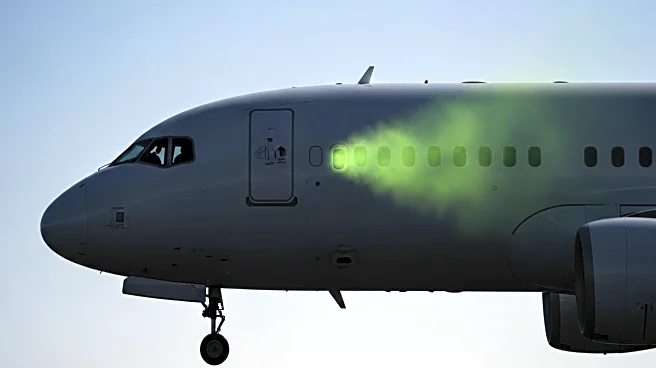What's Happening?
Concerns are rising about passengers and crew being exposed to neurotoxic gases on commercial flights. These fumes, resulting from oil and hydraulic fluid leaks into engines, have led to emergency landings and health issues. Despite awareness of the problem, manufacturers like Airbus and Boeing have been accused of downplaying risks and lobbying against safety measures. The issue is prevalent across many aircraft models, with the Airbus A320 family being notably affected. A bipartisan bill in Congress aims to address the problem by mandating specialized filters and phasing out bleed air systems.
Why It's Important?
The exposure to neurotoxic gases poses significant health risks to passengers and crew, potentially leading to long-term neurological damage. The issue highlights the tension between cost-cutting measures by manufacturers and passenger safety. Addressing these concerns could lead to increased regulatory scrutiny and changes in industry practices, impacting airline operations and passenger trust. The situation also underscores the need for technological advancements in air purification systems, which could drive innovation and improve safety standards.
What's Next?
The proposed bipartisan bill in Congress could lead to significant changes in aircraft design and safety protocols. If passed, manufacturers may need to invest in new technologies and retrofit existing fleets, potentially increasing operational costs. The aviation industry might face pressure from consumer advocacy groups and regulatory bodies to prioritize passenger safety over cost savings. Airlines could also experience shifts in consumer preferences, with passengers opting for carriers that demonstrate higher safety standards.










